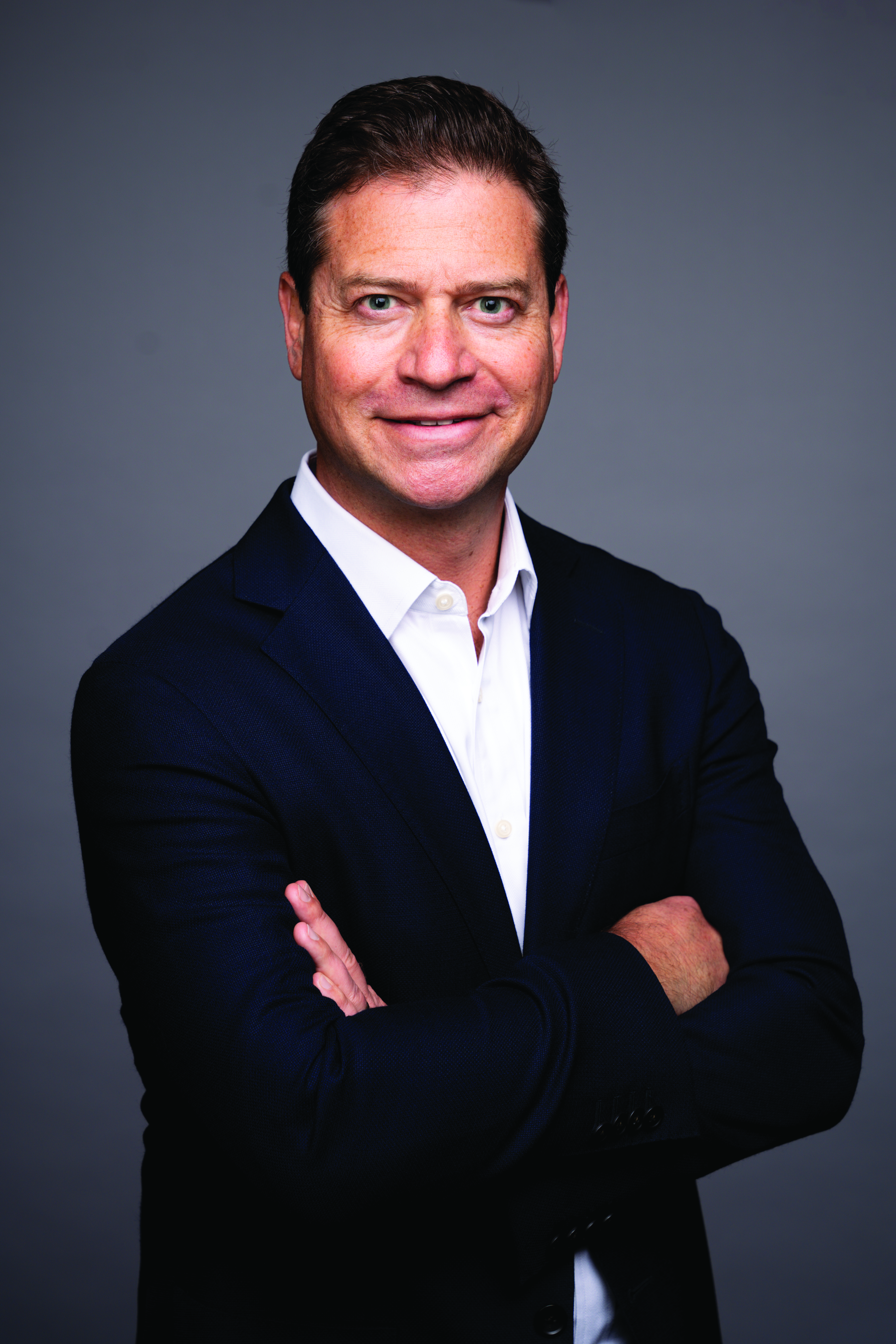As CEO of an air carrier, this lawyer steers the company and flies the planes

Benjamin Klein. Photo courtesy of Benjamin Klein.
If Benjamin Klein isn’t in his office, there’s a chance he could be above it. That’s because Klein isn’t just the CEO of Aero, a San Francisco-based air carrier specializing in semiprivate air travel, he’s also a first officer. Which means he can—and does—fly planes for Aero.
A licensed pilot since high school and a lawyer, Klein completed the required licensure to fly Aero’s Embraer135s and Legacy 600s in January 2023, and he now flies pas- sengers in and out of Los Angeles, Dallas and a growing number of additional cities serviced by the company’s fleet of sleek black jets.
For Klein, it’s a dream gig that finally allows him to merge his experience in aviation and business law with a love of flying that dates back to childhood.
How often do you get to fly planes for Aero?
I try to fly a few times a month. Most of our trips are out and back in a day, so it’s manageable in addition to my other responsibilities at Aero. In my mind, though, flying the line a few times a month is not just manageable, it’s essential. It helps me understand the sort of challenges that our teammates in operations—the ground crew, the flight crew, maintenance—face every day, and I think it makes me a better leader. And you know, selfishly, it’s fun.
I imagine being in the cockpit also gives you perspective on what your customers are experiencing, which I would think is valuable, especially in the luxury market.
Yes. Providing the best-in-class guest experience is such a big part of what we do at Aero. There’s the flight that’s getting from A to B—our main job is getting our guests where they’re going safely and efficiently. But we also strive to provide a level of customer service that wows our guests. Because I play a direct role in delivering a part of that experience, I have a much greater appreciation for what it takes to provide Aero’s service, what we can do to keep it up and what we can do to make it better.
How did you get involved with flying in the first place?
I can’t remember a time when I didn’t love airplanes. Most little kids like airplanes; I just never got over it. I took my first flying lesson when I was 12, and when I was 16, I started actively pursuing my private pilot’s license. I passed the check ride for my private just a couple of days before I left for college.
You know this next question is coming: How did you end up going to law school? Why not pursue a career as a pilot or join the military?
Oh, boy. Well, I don’t have perfect vision—I started wearing glasses and contacts in high school—so military flying, which would have been something I might have pursued, was off the table. Also, I had other things I was interested in. I always knew I would fly airplanes, but I wasn’t sure I’d do it professionally.
Did you get into aviation law topics in law school or target aviation law firms for clerkships or that first job?
No. I don’t think I was thinking creatively enough about my life at that point. And after law school, I had opportunities to go to work at law firms in New York City that were going to pay me what I thought was an astronomical sum, so I went that way. It’s not inspiring, but it’s the truth.
You worked for two BigLaw firms with a federal clerkship in between, but you didn’t actually make that career-changing connection with aviation law until you moved to a boutique firm in Vermont. Tell me about that.
I worked at two great firms with great people, and I wouldn’t trade that experience for anything. But I did quickly know it wasn’t for me. I saw a job posting for a firm in Vermont, and I asked my wife, “What do you think about moving to Vermont?” And a couple months later, we were there. The firm was small but had a general business litigation practice. One of the bigger clients was an aerospace and defense firm, so that’s really when things started to gel … Practicing law is a lot more fun for me when there are airplanes involved. Actually, the first trial I participated in was a breach-of-warranty case that involved an allegedly defective autopilot—our client was the manufacturer.
Had you been flying the entire time, or did this prompt you to get back into it?
I got my private license before I went to college, but I didn’t have the money to fly more than once or twice a year. Also, living in New York City, I didn’t really have easy access to an airport, but that changed when I moved to Vermont. I had the financial means and the access, so I got my instrument rating and started flying a bunch more. This is my early 30s, and it was all starting to make sense—I was starting to see where my legal career was going.
You know, when you come out of law school, unless you are superdirected beforehand, there is some wayfinding that has to happen. And it definitely had to happen for me. It took five or so years for me to start to feel like, “OK, I’m starting to see where this might go.” I remember thinking that I was spending all this money to get various pilot licenses—after private there was instrument, then there was commercial, then multiengine, then flight instructor—but it was an investment in myself and in something that I loved, and as I was moving my legal career in this direction, I hoped it was something that would pay off in terms of my legal career as well.
And it did! You went on to establish your own firm focusing on that practice niche before going in-house at an aviation tech company. How did you ultimately land the job at Aero?
I knew the CEO, Uma Subramanian, and she called one day and said, “Hey, we need a GC; are you interested?” I had met Uma at an aviation event a few years before that; it was serendipitous. I was at a conference in San Francisco, and it was over, but there was a cocktail reception afterward. I was getting ready to go, but then I thought to myself, “I just really want to go home.” But I was already there, so I thought, “All right, I’ll just go for one drink.”
I struck up a conversation with Uma, and it turned out that we both went to Michigan, and she’s just as much of an aviation geek as I am. So it was just one of those moments when I was glad I fought my instinct to go home. That’s the way life works, right? The networking thing is so hard. I’m a social person, so I don’t mind it, but I do often wonder if it’s worth it. But this is an example of how you have to get up to bat before you can get the hit.
And by the way, these kinds of stories abound. I always tell people who are looking to expand into new practice areas or develop their own practice that getting out there and meeting people is huge. I think lawyers often believe their work speaks for itself. If you’re in a big firm, maybe that’s true. But if you want to advance your career and build your own business, you can’t ignore networking. Even if you’re not looking to develop clients, you can meet people that you can refer cases to or just make a new friend.
You were originally hired as Aero’s general counsel before you were promoted to president and then CEO. When you were offered that first position, was the opportunity to fly part of the deal?
It came up, but I would have taken the job anyway. The opportunity to go to work for a new air carrier and help build a service that people love—it was just too exciting to say no.
Did it feel like you’d finally landed your dream job?
I definitely had that feeling. It had been almost 11 years since I realized how I was going to piece together aviation and the law, and this felt like what I’d been working toward.
This story was originally published in the December 2023-January 2024 issue of the ABA Journal under the headline: “Flight Plan: As CEO of an air carrier, this lawyer doesn’t just steer the company—he also flies its planes.”



